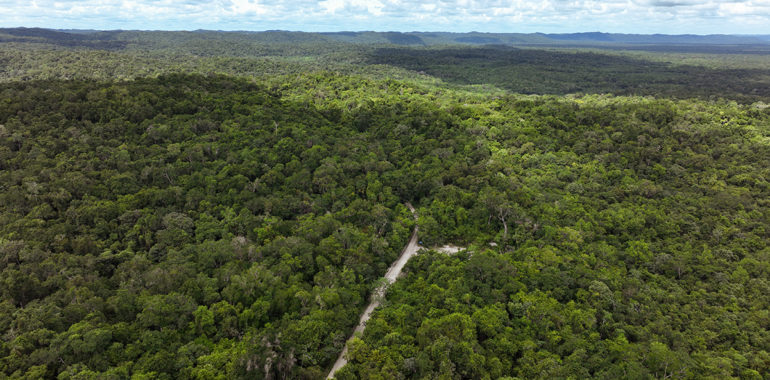On November 1st, we celebrate the 157th anniversary of the World Ecology and Ecologist Day. This day is meant to remind people of the significance of knowing and valuing the relationships that exist between living beings and their environment and to raise awareness among our society about the importance of maintaining a harmonious relationship with our environment. The great mission of celebrating it is to make society aware that ecology, as a science, has a central role in identifying sustainability problems and searching for solutions to face them. This celebration implies, on the one hand, an academic component of recognition of ecology as a scientific discipline and the work of ecologists; and on the other hand, a citizen awareness component focused on the need to maintain a harmonious relationship with our environment by practicing global activism.

Tetragonisca angustulus. Parque Nacional Tikal, Petén. Edwin Solares, 2022.
What is ecology?
Ecology is a science whose name dates to 1869 and was coined by the German scientist Ernst Haeckel as Ökologie. But the science as we know it today began with a group of American botanists in the 1890s. Ecology is a branch of biology and is the study of the relationships among living organisms, including humans, and their physical environment. This discipline considers organisms at the individual, population, community, ecosystem, and biosphere levels. It studies the abundance, biomass, and distribution of organisms in the context of the environment; life processes, interactions, and adaptations; movement of materials and energy through living communities; successional development of ecosystems; cooperation, competition, and predation within and between species; and patterns of biodiversity and its effect on ecosystem processes. This science has achieved great relevance due to estimates of the disappearance of species, caused by the loss of tropical forests, as well as by climatic and hydrological regulation, pollution of water, and soil and air causes.
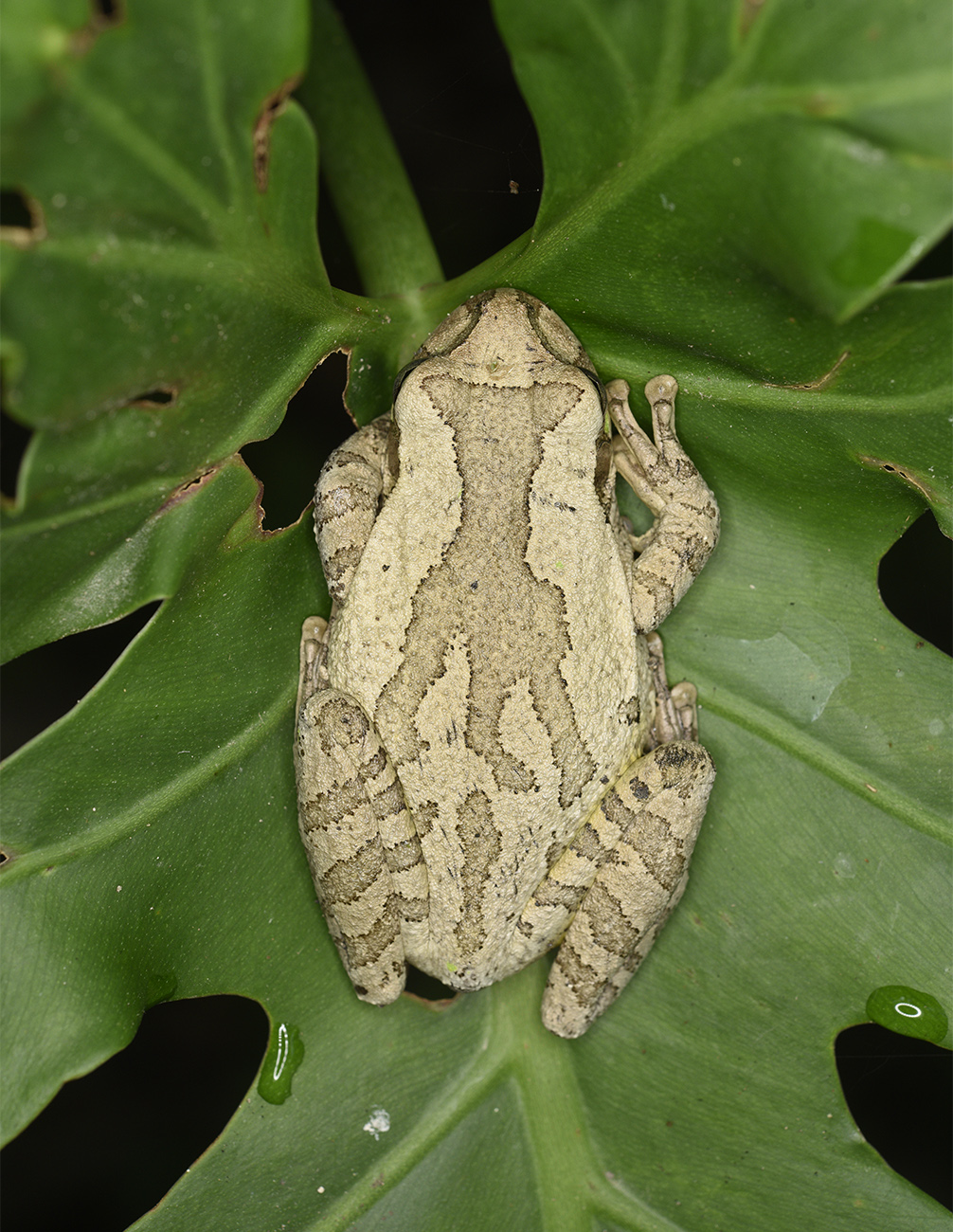
Smilisca baudinii. Parque Nacional Yaxhá-Nakúm-Naranjo, Petén. Nicholas Hellmuth, 2019.
How does an ecologist do their work?
Ecologists can work with conservation organizations, whether non-profit or non-governmental , and in the public and private sectors. They study the relationship between plants, animals, and their environment. The aim of their work could range from balancing the needs of the environment to coming up with ideas for land management. They collect and analyze data to determine environmental conditions and restoration needs; develop and communicate recommendations for landowners to maintain or restore environmental conditions; plan environmental projects with biological databases, environmental strategies, and planning softwares; communicate findings of environmental studies or proposals for environmental remediation; conduct site assessment to certify a habitat or to ascertain environmental damage or restoration needs; develop environmental restoration projects schedules and budgets; supervise and provide technical guidance, training, or assistance to employees working in the field to restore habitats; and create communicative environmental plannings using geographic information systems (GIS) and mapping.

Porthidium nasutum. Cerro San Gil, Livingston, Izabal. Senaida Ba, 2021.
The role of ecology in our lives
Ecology also involves humans in its studies since human activity has a significant impact on general life. Ecologists study how human activities, such as agriculture, fishing, infrastructure construction and industry, affect ecosystems, and how we can reduce these impacts. In addition, ecology also studies how humans interact with ecosystems and how they influence human life. For example, ecologists study how air and water quality affect human health, how ecosystems provide food, water, and building materials, and how ecosystems can influence economic activities. This science is also important for us to educate ourselves about the environment, as it provides valuable information about ecosystems and how humans can interact with them in a sustainable way.
The many specialties within ecology, such as marine, vegetation, and statistical ecology, provide us with information that helps us understand the world around us. This information can help us to improve our environment, manage natural resources, and protect human health. In the 1960s, ecological research identified two of the major causes of poor water quality in lakes and streams, phosphorus and nitrogen, which were found in large amounts in laundry detergents and fertilizers. With this information, citizens were able to take the necessary steps to help restore their communities’ lakes and streams, many of which are once again popular for fishing and swimming.
There are also some non-native species that threaten our forests, lakes, and many ecosystems. Introduced species compete with native plants and animals, often damaging the environment in the process. Ecologists have come up with many ideas on how to control non-native species populations. They also discovered that marshes and wetlands filter toxins and other impurities from water, so now communities can reap the benefits of this ecological service. Leaving these filtering ecosystems intact can reduce the burden on water treatment plants that have been built to perform the same service. By using natural systems, we have the option to build fewer new treatment water plants. Finally, ecologists have discovered that many plants and animals produce chemicals that protect them from predators and diseases. Some of these chemicals have been synthesized by scientists or harvested from the organism and used to treat human diseases.
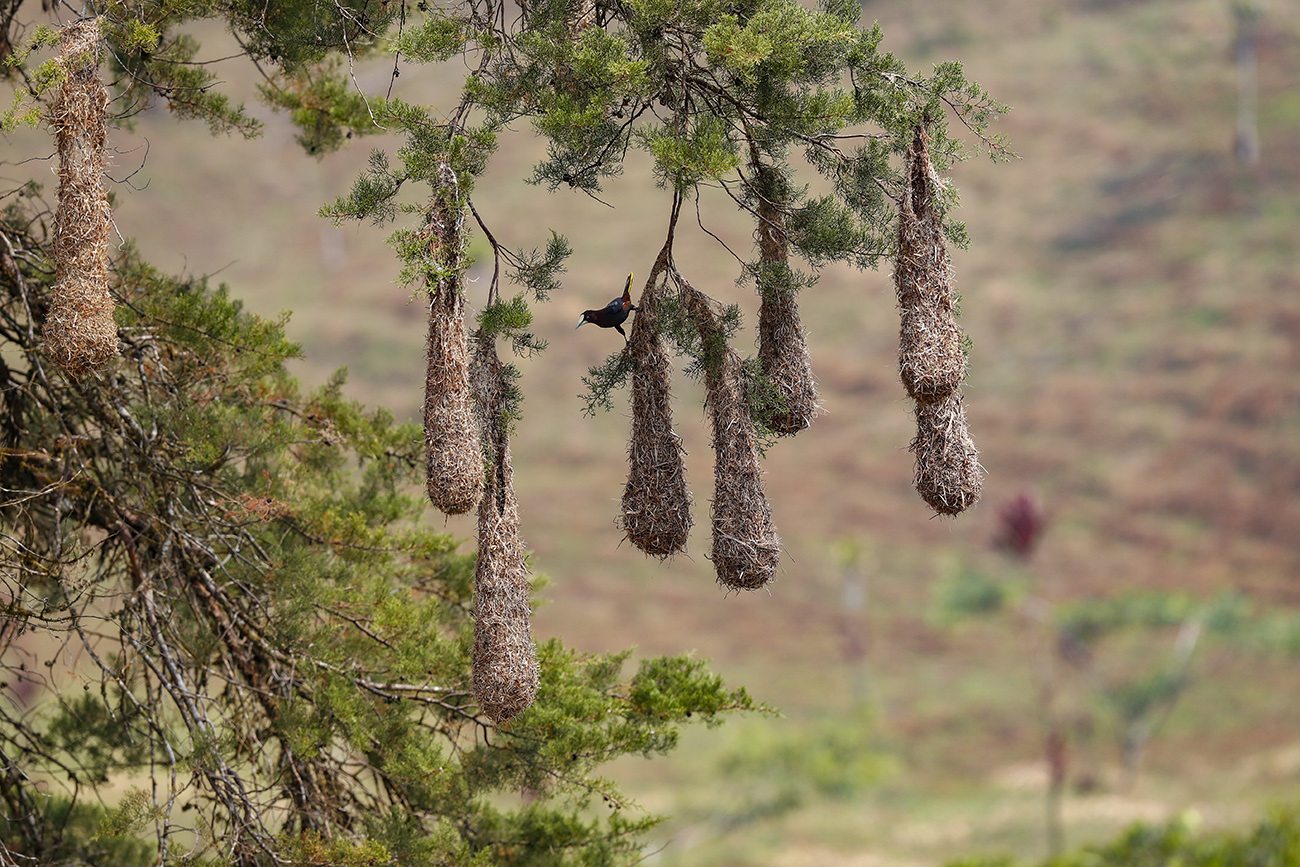 Psarocolius wagleri. Senahú, Alta Verapaz. Erick Flores, 2018.
Psarocolius wagleri. Senahú, Alta Verapaz. Erick Flores, 2018.
The biggest challenge for humanity
Without a doubt, humanity’s greatest challenge is reducing its ecological footprint, which is the measure of the impact of human activities on nature represented by the surface area necessary to produce resources and absorb the impacts of said activity and it is expressed in global hectares. This means that, if we use our natural resources consistently, we will be able to guarantee the well-being and growth of our society. Taking that into account, the value of ecology in our daily lives. It should not be commemorated only once a year; it should be always present and ensure that our actions are respectful of the environment that surrounds us. We have time to repair the damage caused to the environment and it’s our duty to make our footprints as light as possible. With a little daily dedication and environmental commitment, we can have a healthier and less harmful environment for all living beings.
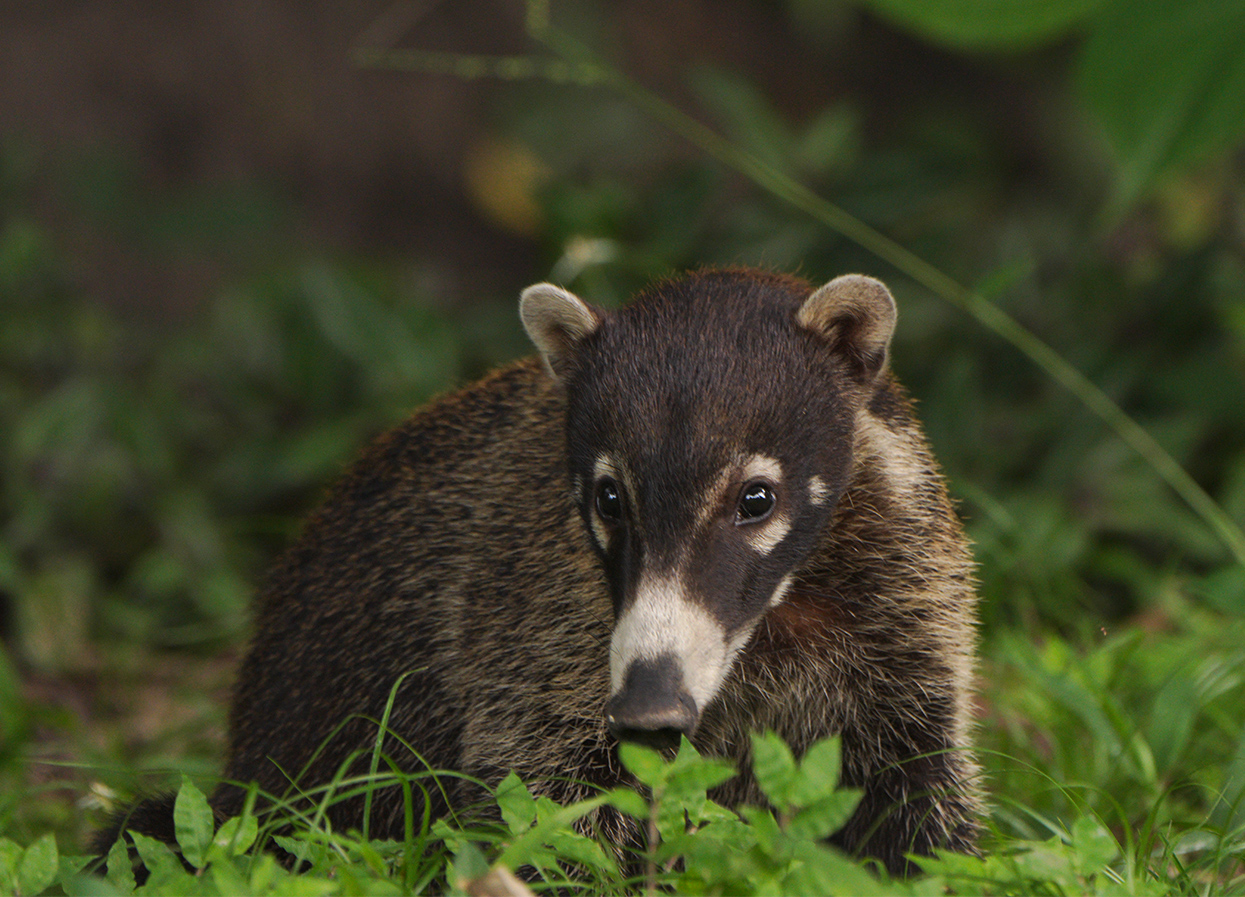
Nasua narica. Parque Nacional Tikal, Petén. Edwin Solares, 2022.
10 ways we can contribute to maintain a healthy ecosystem
- Use less water by taking quick showers.
- Eat less meat.
- Avoid using batteries or switching to rechargeable ones.
- Recycle garbage and classify the organic and inorganic waste.
- Save electricity using long-lasting light bulbs and switching off lights.
- Try carpooling, use public transportation, walk more, or ride a bike.
- Always carry a reusable beverage container.
- Use reusable bags for your groceries.
- Shop secondhand when possible.
- Buy local!
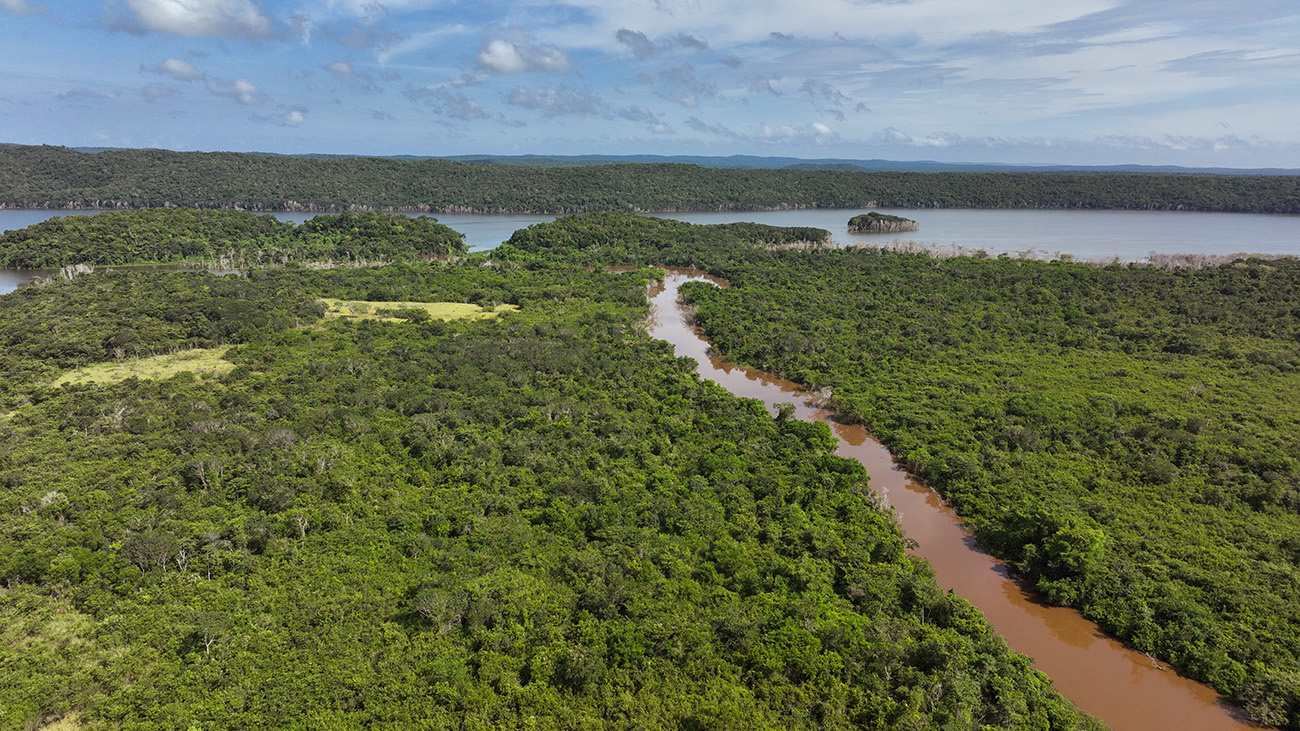 Río Ixtinto, Parque Nacional Yaxhá-Nakúm-Naranjo, Petén. Haniel López, 2022.
Río Ixtinto, Parque Nacional Yaxhá-Nakúm-Naranjo, Petén. Haniel López, 2022.
Written by Flor Morales Arroyo.

